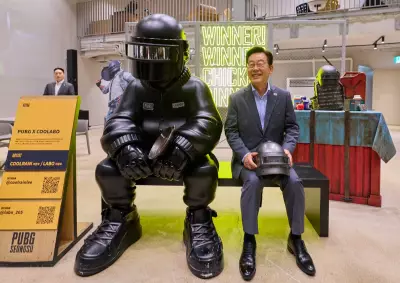
In households across Britain, a new family member is quietly joining the dinner table conversation – and it doesn't eat, sleep, or require pocket money. Artificial intelligence is rapidly becoming the modern parent's secret weapon, transforming everything from bedtime stories to maths homework.
The Digital Nanny Revolution
Forget traditional parenting manuals – today's caregivers are turning to AI assistants to craft personalised fairy tales, explain complex concepts in child-friendly language, and even mediate sibling disputes. What began as simple voice assistants has evolved into sophisticated digital companions that can adapt to a child's age, interests, and learning style.
"We're seeing AI become the third parent in many households," explains Dr Eleanor Vance, child development researcher at Cambridge University. "Parents are using these tools not to replace their involvement, but to enhance it – particularly when they're tired, busy, or simply out of creative steam."
Creativity Boost or Digital Crutch?
The most fascinating development lies in how AI is influencing childhood creativity. Rather than stifling imagination as some feared, these tools appear to be acting as creative catalysts.
Children who struggle with blank-page anxiety are finding their voice through AI collaboration. The technology can generate story starters, suggest character developments, or create visual illustrations that spark rather than replace original thinking.
Parents report remarkable transformations:- Reluctant writers becoming enthusiastic storytellers
- Complex scientific concepts made accessible through AI explanations
- Personalised learning journeys adapting to each child's pace
- Creative blocks overcome through collaborative brainstorming
The Balancing Act: Setting Digital Boundaries
However, child psychologists urge caution. The key lies in how these tools are implemented within family life.
"AI should be a tool for connection, not replacement," warns parenting expert Sarah Chen. "When used thoughtfully, it can create wonderful opportunities for family interaction. But there's a real danger of outsourcing too much emotional labour to algorithms."
Experts recommend establishing clear boundaries:
- Use AI as a collaborative tool rather than a solo activity
- Maintain tech-free zones and times within the home
- Regularly discuss the difference between human and artificial creativity
- Monitor content to ensure age-appropriate interactions
The Future of AI-Enhanced Parenting
As the technology continues to evolve, we're likely to see even more sophisticated applications. Educational AI that adapts to learning disabilities, emotional intelligence coaches for social situations, and creative partners that grow with the child are all on the horizon.
What remains clear is that the most successful implementations combine technological capability with human wisdom. The parents who thrive in this new landscape will be those who view AI as another tool in their parenting toolkit – valuable, but never a substitute for genuine connection.
The revolution isn't coming – it's already here, quietly reshaping childhood one algorithm at a time.





